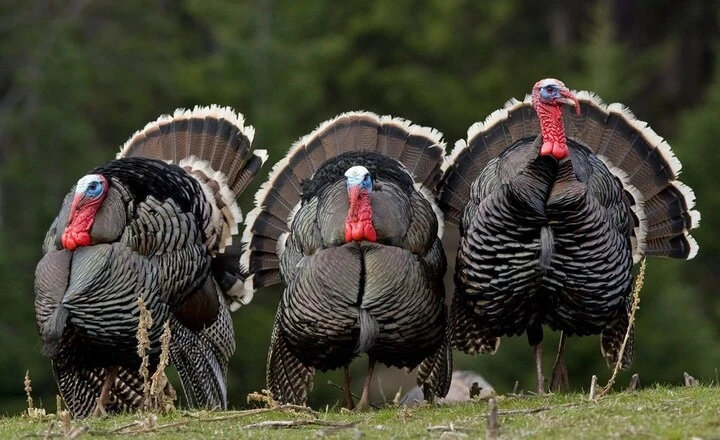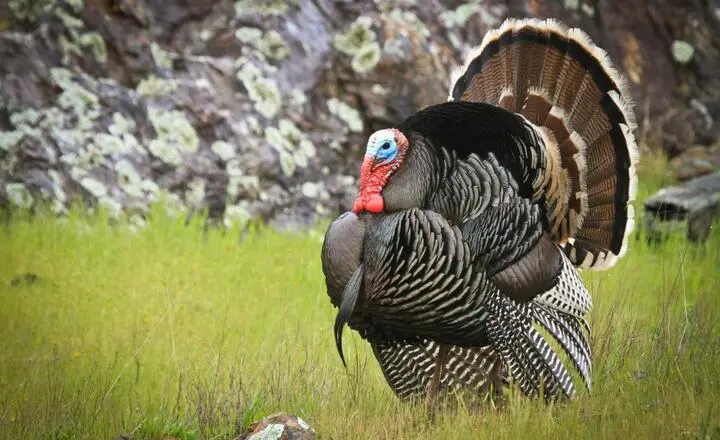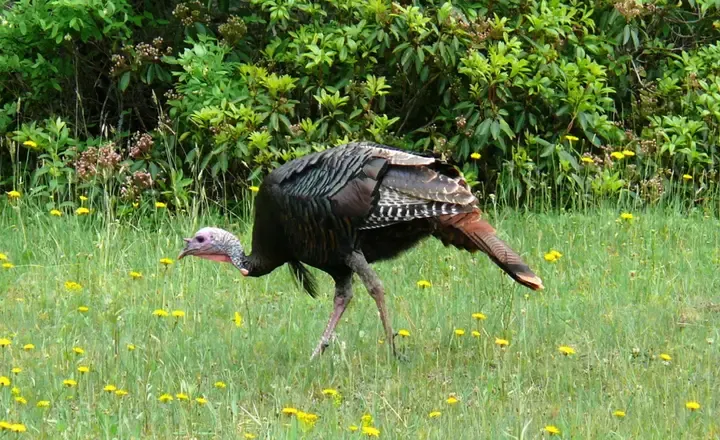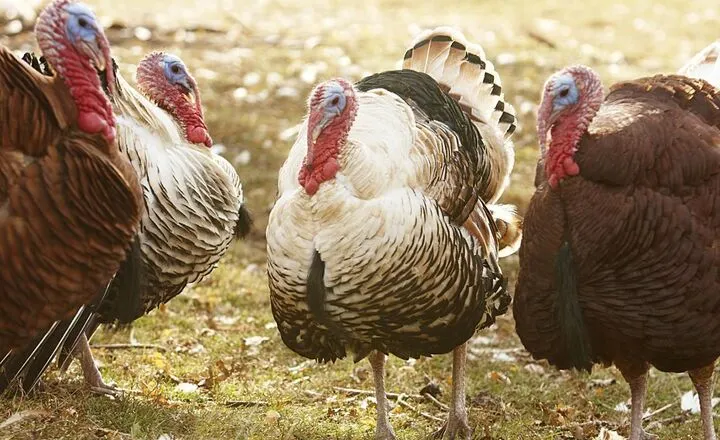Turkeys are known for their majestic plumage and distinctive gobble. This has long been debated among farmers and animal enthusiasts in the poultry farming world. The notion that only hens can produce eggs is a common misconception, but the answer may surprise you regarding turkeys.
This article discussed do Turkeys need a male to lay eggs, but the truth behind turkey biology may surprise you. From ancient myths to modern science, the debate surrounding this topic is as intriguing as it is complex.
Do Turkeys Need a Male to Lay Eggs?
Turkeys do not need a male to lay eggs. Female turkeys, known as hens, can lay eggs independently without a male turkey, also called a tom. This is similar to poultry birds such as chickens and ducks, where females can lay unfertilized eggs regularly.
If you are interested in having turkeys solely for egg production, there is no requirement to have a male turkey in the flock.
Most poultry birds do not need a male to lay eggs.
Female turkeys are capable of laying eggs without the presence of a male turkey, also called a tom. Hens have ovaries that contain all the necessary reproductive elements to produce eggs.
The eggs laid by hens without mating are unfertilized and will not develop into chicks. If you are raising turkeys primarily for egg production, there is no need to have a male in the flock.

It is important to note that while turkeys can lay eggs without a male, having a tom present can still be beneficial for other reasons, such as natural mating for breeding purposes or social interactions within the flock.
If your main goal is egg production, focusing on acquiring more female turkeys can be a cost-effective strategy to ensure a steady supply of eggs. Understanding the reproductive capabilities of poultry birds like turkeys can help optimize your farming practices for maximum efficiency and productivity.
The eggs laid without males – have the same nutritional value.
Eggs laid by turkeys, ducks, and chickens without males or roosters are essentially the same in taste and nutritional value as those laid with males. The absence of a male does not affect the quality or flavor of the eggs produced. Whether fertilized or not, these eggs contain similar protein levels, vitamins, and minerals.
Many people prefer to consume unfertilized eggs due to ethical or religious reasons. These eggs are just as suitable for consumption and cooking as fertilized ones. So rest assured that you can enjoy your eggs without worrying about any difference in taste or nutrition based on whether they were laid with males.
Does not having males affect the number of eggs laid each month?
Not having males present does not affect the number of eggs laid each month by poultry birds such as turkeys, ducks, and chickens. These birds can consistently lay the same number of eggs whether a male is present.

If the eggs are collected regularly, the birds will continue to lay eggs at a steady rate. If the eggs are left uncollected, the birds may adjust their laying cycle and incubate a batch before resuming their egg-laying routine. The presence or absence of males does not significantly impact the egg production of these poultry birds.
Do Turkeys lay eggs all year round?
They do not lay eggs all year round. While they can lay eggs throughout the year, daylight hours and temperature influence their egg production. Turkeys tend to lay more eggs during the spring and summer when daylight hours are longer.

They can lay around 100 eggs yearly, significantly less than chickens that can lay up to 250 eggs annually. This lower egg production rate is a natural part of the turkey’s reproductive cycle and should be considered when raising them for egg production.
The male and female Turkeys mate to produce fertile eggs
Male and female turkeys do mate to produce fertile eggs. During the mating season, male turkeys, known as toms, will display their feathers and perform elaborate courtship rituals to attract a female turkey, known as a hen.
Once a pair has bonded, they will mate, and the hen will lay fertilized eggs that can develop into baby turkeys. Male and female turkeys need to mate to continue the turkey population.

Mating and producing fertile eggs ensures the species’ survival and allows new generations of turkeys to thrive in their natural habitats. Mating behavior in turkeys is an essential part of their reproductive cycle and plays a crucial role in maintaining the biodiversity of these fascinating birds.
Brooding Checklist
Setting up a turkey brooder is indeed quite similar to preparing one for chicks, making it easier for those who have experience with the latter. Start with a safe, dry container that provides ample space for your turkeys to move around.
Pine chips are an excellent choice for bedding as they help absorb moisture and provide a comfortable surface for the birds. It’s crucial to ensure that the brooder includes a heat source, such as a heat lamp, along with a thermometer to monitor the temperature accurately.
Remember to create areas with different temperature zones. This allows your turkeys to self-regulate their body temperature by moving away from direct heat when they need to cool down.
Placing the waterer in this cooler area is also beneficial since it prevents the water from getting too warm.
Gradually raise the heat lamp each week, reducing the temperature by about five degrees until your turkeys are fully feathered and can thrive without additional warmth.
Conclusion
The debate on do Turkeys need a male to lay eggs or not concluded that they do not need a male to lay eggs, as they can reproduce without fertilization. The egg-laying process is a natural and instinctual behavior in female turkeys.
The presence of a male turkey can improve the chances of successful breeding and reproduction. Understanding the reproductive biology of turkeys is crucial for effective management and breeding practices in poultry farms.
FAQs
Can a male turkey mate with a chicken?
A male turkey cannot mate with a chicken. While turkeys and chickens are poultry birds, they belong to different species and cannot reproduce successfully.
Are turkeys aggressive when they mate?
It is a natural behavior driven by instincts and competition for mates. It is essential for those who observe these behaviors to give the birds space and avoid provoking them further.
At what age is a male turkey fertile?
Male turkeys, or toms, typically reach sexual maturity and become fertile around 6 to 7 months of age.
